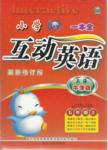题目内容
________ he is doing an operation on the patient, please don't disturb him.
- A.Right away
- B.Right now
- C.In no time
- D.At once

 互动英语系列答案
互动英语系列答案 名牌学校分层周周测系列答案
名牌学校分层周周测系列答案A person may have an idea about himself that will prevent him from doing good work. He may have the____36____ that he is not capable of it. A child may think he is stupid because he does not understand how to make the ____37____ of his mental faculties(官能). Older people may be mistaken that they are incapable of ____38_____ anything new because of their age.
A person who believes that he is incapable will not make a real ____39_____ , because he feels that it ____40_____ be useless, he won’t go at a job with the confidence necessary for success, and he won’t work his hardest, even though he may____41_____ he is doing so. He is ____42_____ likely to fail, and the failure will ____43____ belief in his incompetence(无能). Alfred Adler, a famous doctor, had a (an) ____44_____ like this. When he was a small boy, he had a poor ____45____ in maths. His teacher told his ____46_____ he had no ability in maths in order that they would not ____47____ too much of him.____48_____he too accepted ____49_____ mistaken thinking of his ability, and he felt that it was useless to ____50____, and was very poor at maths, ____51____ as they expected.
One day he worked out a problem which ____52_____ of the other students had been able to solve. Adler succeeded in solving the problem. This gave him confidence. He now ____53____ with interest, determination and purpose, and he soon became especially good at ____54____. He not only proved that he could learn maths well, but luckily he learned early in his life from his own experience that if a person goes at a job with determination and purpose, he may ____55_____ himself as well as others by his ability.
| 【小题1】 |
|
| 【小题2】 |
|
| 【小题3】 |
|
| 【小题4】 |
|
| 【小题5】 |
|
| 【小题6】 |
|
| 【小题7】 |
|
| 【小题8】 |
|
| 【小题9】 |
|
| 【小题10】 |
|
| 【小题11】 |
|
| 【小题12】 |
|
| 【小题13】 |
|
| 【小题14】 |
|
| 【小题15】 |
|
| 【小题16】 |
|
| 【小题17】 |
|
| 【小题18】 |
|
| 【小题19】 |
|
| 【小题20】 |
|
完型填空(共20小题;每小题1。5分,满分30分)
Every human being, 36 what he is doing, gives off body heat. The usual problem is 37 dispose of it. But the designers of the Johnstown campus of the University of Pittsburgh set themselves the 38 problem — how to collect body heat. They have designed a collection system which utilizes 39 body heat, but the heat given off by such objects 40 light bulbs and refrigerators as well. The system works so well 41 no conventional fuel is needed 42 the campus’ six buildings comfortable.
Some parts of most modern buildings — theatres and offices 43 classrooms — are more than amply heated by people and lights and sometimes must be air-conditioned 44 in winter. The technique of 45 heat and redistributing it is 46 “heat recover”. A few modern buildings recover 47 , but the university’s system is the first to recover heat 48 some buildings and re-use it in 49 . Along the way, Pitt has learned a great deal about some of its heat producers. The 50 a student studies, the more heat his body 51 . Male students emit more heat than 52 students, and the larger a student, the more heat he 53 . It is tempting to 54 that the hottest prospect for the Johnstown campus would be a 55 , over-weight male genius.
|
1. |
|
|
2. |
|
|
3. |
|
|
4. |
|
|
5. |
|
|
6. |
|
|
7. |
|
|
8. |
|
|
9. |
|
|
10. |
|
|
11. |
|
|
12. |
|
|
13. |
|
|
14. |
|
|
15. |
|
|
16. |
|
|
17. |
|
|
18. |
|
|
19. |
|
20.A. easy-going . fun-making C.hard-working D. good-for-nothing
 It takes a unique approach to teaching culture and English together. It is easy to read and combine humor and useful expressions in one book.
It takes a unique approach to teaching culture and English together. It is easy to read and combine humor and useful expressions in one book.  It is by far one of the most complete language usage reference books on the market today. It addresses some of the most common mistakes in English and provides clear examples to demonstrate and explain these errors.
It is by far one of the most complete language usage reference books on the market today. It addresses some of the most common mistakes in English and provides clear examples to demonstrate and explain these errors. 
 This book can be used as a reference book to enhance one’s vocabulary for overall comprehension and/or different academic tests like the GMAT or TOEFL.
This book can be used as a reference book to enhance one’s vocabulary for overall comprehension and/or different academic tests like the GMAT or TOEFL.  It is an amazing story about a student and his former teacher and the relationship they develop in the face of death. A perfect book for reading in classes.
It is an amazing story about a student and his former teacher and the relationship they develop in the face of death. A perfect book for reading in classes.  Often, students think that studying for the TOEFL is simply a matter of learning more grammar. However, this book helps students learn test-taking strategies that help a reader stay focused on the skills they really need.
Often, students think that studying for the TOEFL is simply a matter of learning more grammar. However, this book helps students learn test-taking strategies that help a reader stay focused on the skills they really need.